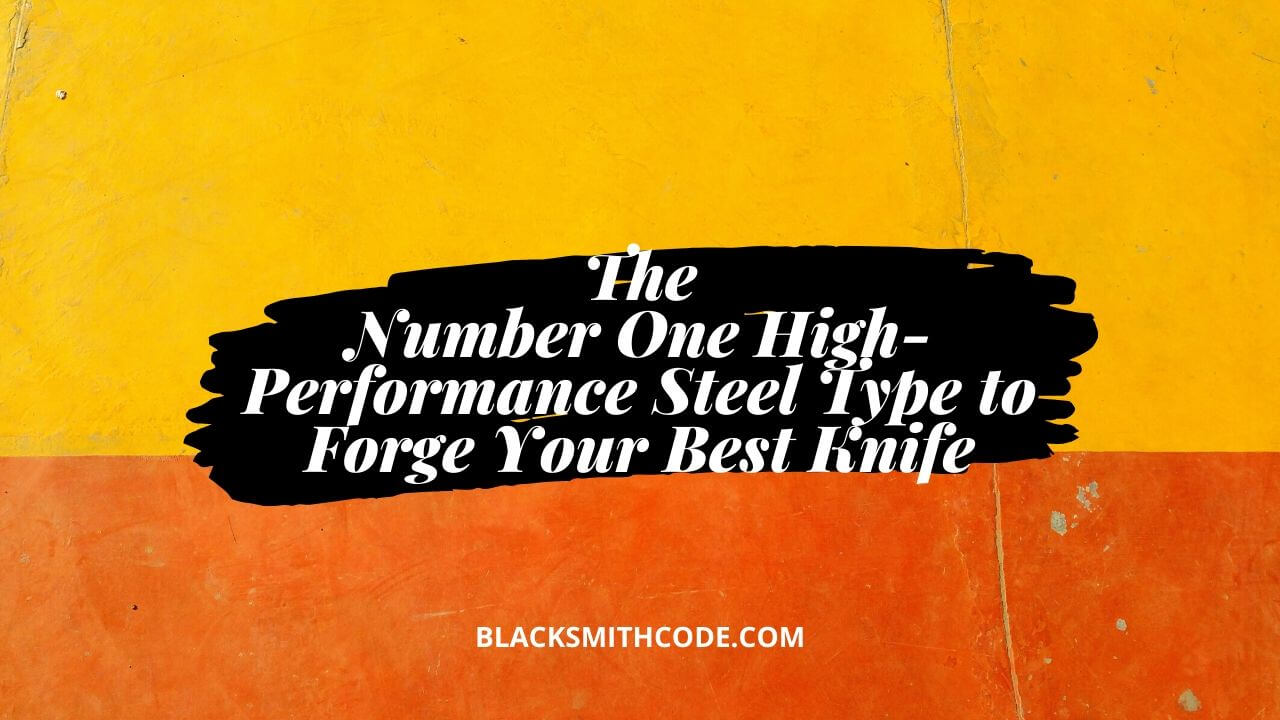Knifemaking is one of the simplest beginner blacksmithing projects. It is also one of the most viable in terms of marketability. You can forge lots of unique handmade knives that are likely to have good currency among niche community of buyers who love craft items. The process will even be easier when you use the best steel for knife making.
However, before you get into the nitty-gritty of forging your first knife, it is important to know the right steel type that you will need for knifemaking. The type of steel used has a direct correlation to the quality of knife made. You would want to make strong and durable knives that can stand all kinds of reasonable physical pressures and which have good edge resistance and resistance to corrosion.
Steel is so commonly used that many might assume it’s an element. It’s actually an alloy of iron and carbon.
Steel has some great properties that make it a suitable material for forging diverse items
1. Hardness
2. Strength
3. Hardenability
4. Corrosion resistance
5. Elasticity
6. Wear resistance
7. Sharpness
8. Toughness
All of these properties make steel a highly capable and admirable forging material in the blacksmith’s workshop. We also tend to assume that steel is simply steel. That all steel is the same. In reality, there are multiple steel formulations that create different steel grades. Each of these formulations create a material that is optimized for certain applications. For example, for knife making, you will need a particular type of steel.
As a master blacksmith, you will need to develop a “steel IQ”. You must familiarize yourself with the different permutations of steel and know which one to use where.
Types of steel used in knife making
There are three main types of steel used in knife making:-
1. Stainless Steel
2. 1095 Knife Steel
3. Carbon Steel
4. Tool Steel
Stainless Steel
This is arguably the best-known knifemaking steel. Stainless steel includes not only carbon but also 10%-20% chromium. At 11% chromium composition, the steel is 200 times more resistant to corrosion.
It also includes other alloys which create an alloyed metal with incredible corrosion resistance. Knives made from stainless steel can be made from either a martensitic stainless steel or an austenitic stainless steel. The stainless steel grades commonly used for knifemaking include 420 and 440 grades. The other stainless steel grades used in in knifemaking include the 316 and 304L.
1095 Knife Steel
You might be more familiar with stainless steel but the 1095 Knife Steel is the most commonly used material for forging knives. The material consists of 0.95% carbon which results in incredible hardness and reduces the wear in the blade. As a result, knives made from 1095 Knife Steel tend to be very durable. The downside is that it also contains a lot of manganese which can make for a more fragile steel blade.
Carbon steel
Carbon steel is another commonly used steel type in knifemaking. It offers the advantage of hardness and strength that results in knives that are impact- and wear-resistant. The downside is that knives forged from carbon steel tend to be susceptible to rust as carbon steel does not contain many alloying elements like the corrosion-resistant stainless steel. There are numerous carbon steel grades that you can go for. These include:
1. Low carbon steel: Mild steel with up to 0.3% carbon.
2. Medium carbon steel (C1045): Has 0.3% to 0.6% carbon.
3. High carbon steel (C1075): Has more than 0.6% carbon.
4. High-wear resistance carbon steel (C1090)
Tool Steel
There are certain carbon steel grades that also include some small amounts of alloying elements like cobalt, tungsten and molybdenum. These are known as tool steel. These alloying elements enhance their mechanical properties. It is one of the best steel for knife making.
The main purpose of these alloying elements is to enhance the corrosion resistance of the carbon steel material, making these steel types highly suited for knifemaking. However, the alloying doesn’t enhance the carbon steel to the quality standard of the stainless steel.
There are several steel tool grades that you can select for knife making. These include the following:-
A2
It isn’t as hard as other tool steels but it has impressive toughness. However, if not well taken care of, it tends to be susceptible to rest.
D2
This tool steel has better corrosion resistance as well as a more enhanced edge retention than the A2 grade above.
M2
The M2 tool steel grade is brittle but it has an impressive edge retention.

